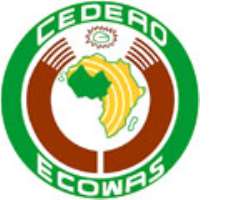ENERGY EXPERTS VALIDATE DRAFT REGULATION TO ENSURE REGULATORY FEES FOR ERERA

ABUJA, Nigeria, August 2, 2013/African Press Organization (APO)/ -- Experts on energy matters from across West Africa have validated the draft Regulation Relating to the Payment of Regulatory Fees on Regional Electricity Cross-border Trades, a legal document to facilitate a funding mechanism for the ECOWAS Regional Electricity Regulatory Authority (ERERA) and enable it operate as an autonomous and independent regulatory body. The energy experts agreed on the draft legal text at the end of their three-day meeting on 26th July 2013 in Dakar, Senegal following a request by regional energy ministers for them to find a consensus for the method of calculation and payment of regulatory fees, as well as its related regulation. The legal texts setting up ERERA, which began operations in 2009, provide for ordinary and extra-ordinary sources of funding for the body, including contributions from regional market stakeholders. According to ERERA's financing plan, stakeholders' contributions were to begin in 2012, on the assumption of an increased regional electricity trade. A lack of mechanism for determining the regulatory levy has however stalled the process. Basic elements for the mechanism include completion of the approval process of the market rules and relevant documents to regulate the market, establishment of the market operator to determine and collect the levy, as well as the development of licences and rights to participate in the market. Pending the adoption of an acceptable mechanism, the experts at the Dakar meeting agreed that the validated regulation for regulatory fees for ERERA would deal with the transition period only.
In addition, they said it was necessary to immediately engage actors in the regional electricity sector to start making contributions to ERERA's budget. Specifically, the experts
proposed that the operators in the electricity sector in each Member State should contribute 30 per cent of ERERA's budget during the transition period.
Furthermore, they called on ERERA to do a simulation on the impact of the regulation on domestic tariffs in Member States.
The experts' proposals and the validated regulation will be considered at the next meeting of the ECOWAS Council of Ministers.
Represented at the meeting were ministries of energy, electricity companies and regulatory bodies from across the region.
Also in attendance were representatives of regional institutions and agencies, notably the West Africa Power Pool (WAPP) and the Organisation pour la Mise en valeur du fleuve Sénégal (OMVS,) which was represented by the Société de Gestion de l'Energie de Manantali (SOGEM) and the Institute for research, training and action for Consumer Citizenship and Development (CICODEV).
